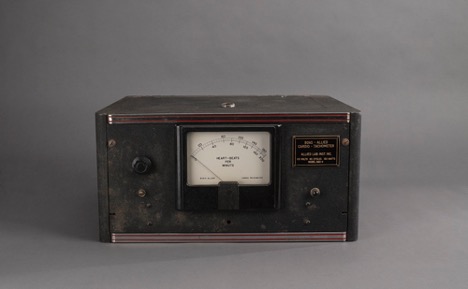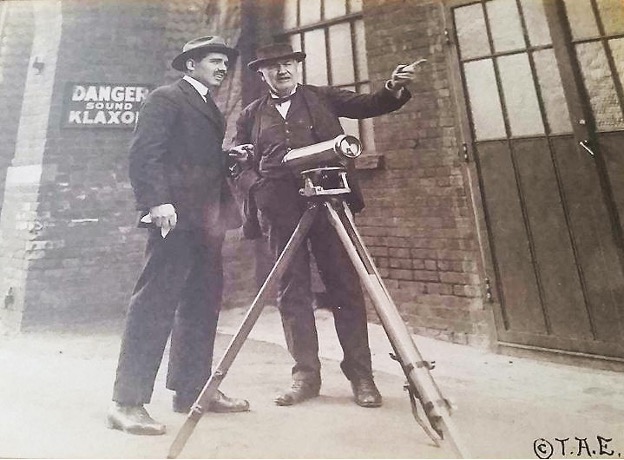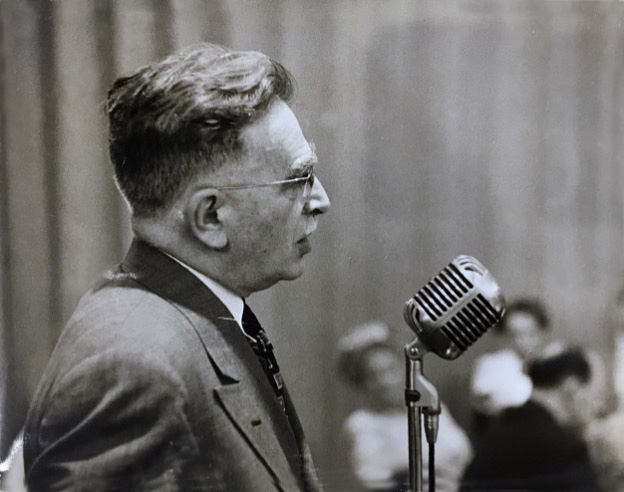Cardiologist fought for universal health care and racial equality. Fund at The Trust supports medical education and health policy research.
Ernst Philip Boas (1891-1955)
In 1945, when President Harry S. Truman announced his plan for universal health care and insurance, Dr. Ernst Philip Boas was one of its staunchest supporters. Ernst was a highly respected New York cardiac and chronic disease specialist, teacher, and hospital administrator. For years he fought for the “Truman Plan,” arguing that only such a law would bring the best medical care and hospital facilities within reach of most Americans.
In 1939, he organized and led the Physicians’ Forum, a progressive group of doctors who studied and debated health care issues. While the Physicians’ Forum supported universal health care, the American Medical Association (AMA) was staunchly opposed. The two groups frequently clashed.
In a July 1945 interview with The New York Times, Ernst charged that the AMA misrepresented the Truman-backed bill, saying it would lead to “regimentation and totalitarianism.” “Actually, the AMA is itself trying to regiment physicians into an isolationist and antisocial attitude on the important nation issue of health security,” Ernst said. He also charged that “today there is no freedom of speech in the medical press,” and that The Journal of the American Medical Association suppressed views that opposed the AMA’s position.
Despite gallant efforts, Truman’s health care plan failed, and eventually was replaced by a web of private insurance and targeted public coverage—Medicare and Medicaid. In 1949, Ernst received a letter from Truman’s secretary, thanking him for his support: “He [Truman] deeply appreciates your word of approval on his message to Congress of April 22 recommending the enactment of legislation to improve the health of our people.”
Ernst was born February 4, 1891, to Marie and Franz Boas in Worcester, Massachusetts. He spent his college years at Columbia University and, in 1914, graduated at the top of his class from the College of Physicians and Surgeons. He married Helen Sisson on December 24, 1917, and they had two sons and a daughter.
After being rejected by New York City’s leading internship programs—which he interpreted as antisemitism—Ernst interned for two years at Mount Sinai Hospital. When the United States entered World War I, he served as a captain in the Army Medical Corps and chief of medical services at a base hospital in France. After the war, he established a private practice in the City and taught physiology at Columbia for a year.

In 1921, Ernst became medical director at Montefiore Hospital in the Bronx, where he refined his expertise in cardiology and geriatric medicine. In the mid-1920s, he and his colleagues Benjamin Liebowitz and Dr. Ernst F. Goldschmidt developed the cardiotachometer, a widely used instrument that measures patients’ heart rates over long periods. From 1938 to 1951, Ernst was assistant clinical professor of medicine at the College of Physicians and Surgeons, and an associate physician at Mount Sinai. He also wrote several books and many scientific articles on cardiovascular disease and chronic illness.
Ernst Boas comes from a fascinating and distinguished family. His great-aunt was married to Abraham Jacobi, often regarded as the father of pediatrics. And his maternal grandfather, Ernst Krackowizer, was a Civil War surgeon. The two of them collaborated to found German Hospital and Dispensary, later renamed Lenox Hill Hospital, on Manhattan’s Upper East Side.
Ernst’s father, a German immigrant, is known as the father of modern anthropology. For 37 years, Franz taught at Columbia University, challenging racial and ethnic stereotypes. Franz posited that all human groups are fundamentally equal, and they simply need to be understood within their own cultural contexts.
Like his father, Ernst was committed to social justice and worked against any type of discrimination. He was instrumental in getting hospitals to hire African American physicians and nurses. He also helped many doctors from abroad begin new careers in this country as teachers, researchers, and physicians.
Although he was in great demand as a cardiologist, Ernst devoted much of his time to public health. He was chairman of the Welfare Council’s Committee on Chronic Illness and the Medical Advisory Council of the Sidney Hillman Health Center, and a member of the Heart Committee of the New York Tuberculosis and Health Association.
He championed better care and facilities for chronically ill patients and pushed to build the Goldwater Memorial Hospital for Chronic Diseases on Welfare Island (now called Roosevelt Island). The rooms featured terraces; each ward had a solarium; and the hospital, designed to offer air and light, had 2,700 windows. The hospital was demolished in 2014.
Over the years, Ernst was a leading member (or officer) of the American Heart Association, the American Medical Association, the American Society for the Study of Arteriosclerosis, the Committee for the Nation’s Health, and the New York Academy of Medicine.
Dr. Ernst Philip Boas died of pancreatic cancer on March 9, 1955. He was 64.
His fund at The Trust, established by his friend and collaborator, Benjamin Liebowitz, supports medical education and health policy research.

ahf.nuclearmuseum.org
Benjamin was born in 1890 in New York City and received a PhD in physics from Columbia University. After graduation, he worked for Thomas Edison, focusing his research on quantum mechanics and relativity.
According to the Atomic Heritage Foundation’s website, Benjamin met Hungarian-born physicist Leo Szilard in New York in 1932, and the two quickly became friends. In 1939, Szilard discovered that a uranium-based chain reaction might be possible, but he needed further tests to prove it, according to the foundation. Out of money, Szilard borrowed $5,000 from Liebowitz, providing the first American funding for nuclear chain reaction experiments. Szilard then initiated the Manhattan Project, which, in turn, developed the atomic bomb during World War II and changed the course of history.
During the war, Liebowitz worked on radar development. He later founded the Trubenizing Process Corporation, which revolutionized the shirt industry after he invented the semi-stiff one-piece collar, eliminating the need for starch after washing.
Liebowitz died in 1977 in Norwalk, Connecticut.
Books by Dr. Ernst P. Boas:
The Challenge of Chronic Diseases (1929)
The Heart Rate (1932)
Coronary Artery Disease (1949)
Treatment of the Patient Past Fifty (1941)
The Unseen Plague–Chronic Disease (1940)
Cardiac Injury Resulting from Effort or Trauma: Clinical & Legal Aspects (1955)

